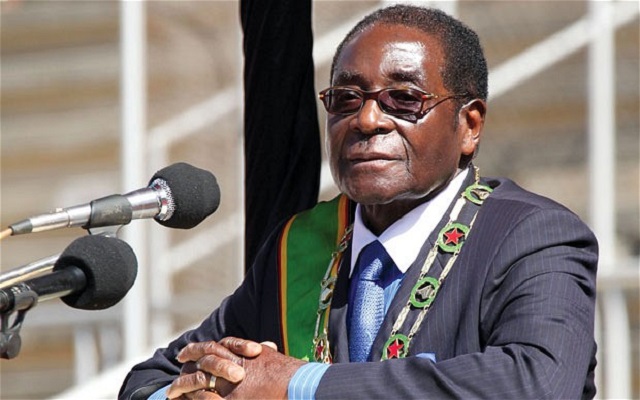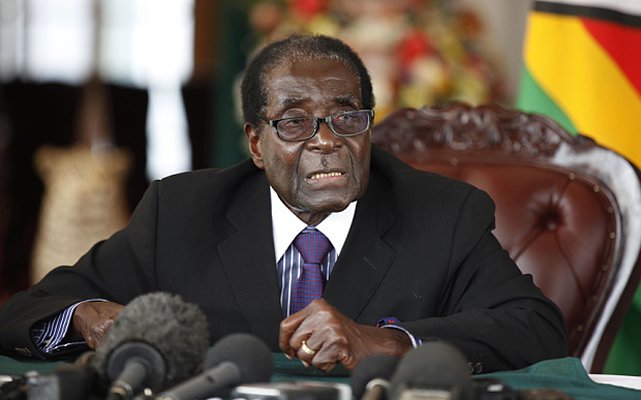‘Why President always wins polls’

Harare Bureau
Zanu-PF continues to win national elections due to its tangible deliveries to the electorate and contributions from loyal supporters who stick to the values of the revolutionary party, prominent United Kingdom based authors have said.
The authors said Zanu-PF supporters could easily be mobilised even in difficult times.
This is contrary to the opposition MDC-T that survives on sympathisers and pockets of disgruntled people to Zanu-PF policies.
In a review of a book titled: “Why Mugabe Won. The 2013 Elections in Zimbabwe and their Aftermath” to be published next month by Cambridge University Press, Stephen Chan and Julia Gallagher, said the MDC-T survived on sympathisers without attachment to the opposition party.
The authors’ views dovetail with results of a recent survey by Afrobarometer that found that President Mugabe enjoys support from two-thirds of adult Zimbabweans, while the same number has lost trust in the opposition MDC-T led by Mr Morgan Tsvangirai.
Former MDC-T top official Dr Toendepi Shonhe also predicted grand defeat for a coalition of opposition parties expected to be led by Mr Tsvangirai in next year’s harmonised elections, arguing the opposition suffered ideological bankruptcy and donor fatigue.
After suffering heavy defeat from Zanu-PF in 2013, former MDC-T secretary general Mr Tendai Biti also, admitted at a public forum at Sapes Trust that Zanu-PF’s formula of delivering tangibles such as land and other economic empowerment issues, paid dividends to the revolutionary party, while the opposition party depended on some abstract views that did not have relevance to Zimbabweans.
Reads part of Chan and Gallagher’s book review: “The opposition offers nothing tangible or ‘ideal’… It did not have loyal members that were sold into the cause… Zanu-PF has got supporters and the opposition has got sympathisers.
“Supporters are loyal — even if things are going wrong they will continue to support. They contribute to the party. They believe in the cause. And the Movement for Democratic Change (MDC) has sympathisers — disgruntled Zanu-PF people, with scores to settle, opportunists. “Some are genuine activists.
There is no ideological connection between the sympathisers and the MDC. They are more fluid. You can’t count on them. They can abandon the ship.”
The book, which is a result of extensive fieldwork by the two researchers, came to the conclusion that Mr Tsvangirai lost to President Mugabe in polls held under the same conditions.
In the book, Chan and Gallagher explored the domestic and international context of the landmark elections.
Drawing on extensive research among political elites, grass roots activists and ordinary voters, the two examined the key personalities, events, social and political context of President Mugabe’s success and what this meant to Zimbabwe.
In their search, the duo examined why suddenly President Mugabe became popular again with the same voters and discovered that the people of Zimbabwe felt betrayed by an opportunistic opposition whose true colours were exposed when they tasted power during the inclusive Government.
“Its (MDC) supporters felt that the party’s once strong networks and unifying spirit — forged in the difficult days of opposition — had melted away as elites had begun to taste the pleasures of office,” they wrote.
“They appeared to have pulled the ladders up after themselves, leaving their grassroots without moral or material support. This left activists unable or disinclined to attempt to woo voters who had begun to question the party’s abilities, either to perform in government, or to represent their interests.
“None of this appeared to have been recognised by the party, which ran a badly organised and lacklustre campaign, apparently complacent that the electorate would be steadfast in its support.”
The authors argued that the sense of disillusionment was not helped by Mr Tsvangirai’s behaviour during his time as Prime Minister, when he failed to portray himself in a way befitting of a serious national leader.
“Tsvangirai, it was clear from his time as Prime Minister, had ceased to be a thinkable president in 2013,” they said. “His love affairs, his apparent lack of concern at the growing corruption of MDC representatives in national and local government, his inability to instil discipline in his party; none represented him as a good father figure, or president.”








Comments